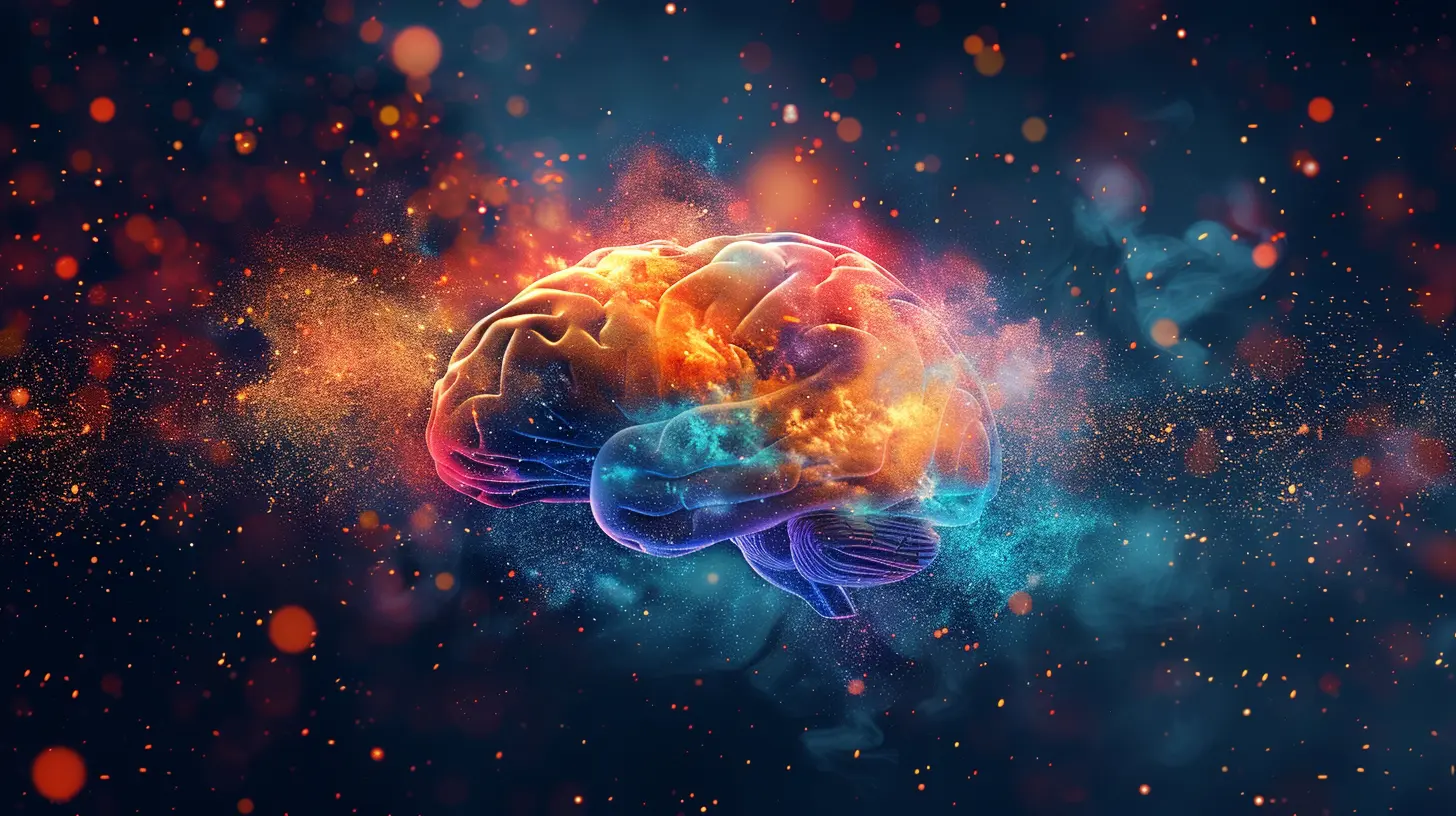The Role of Dopamine in Motivation and Reward
25 February 2025
Have you ever wondered why you feel so good after accomplishing something? Or why you’re constantly chasing that next big win, whether it’s finishing a project, hitting the gym, or even snagging a great deal online? That sense of satisfaction, that little jolt of pleasure you get—it’s not just in your head (well, technically it is, but stay with me). It’s all thanks to a powerful chemical in your brain called dopamine.
In this article, we’ll dive deep into the role of dopamine in motivation and reward. We’ll break down what dopamine actually is, how it works in your brain, and why it’s so important for keeping you motivated and driven. Spoiler alert: without dopamine, life would be a lot more boring and way less rewarding.

What Is Dopamine?
Let’s start with the basics. Dopamine is a type of neurotransmitter, which is just fancy science speak for a chemical messenger in your brain. It’s one of the chemicals responsible for transmitting signals between neurons, the cells in your brain and nervous system that communicate with each other. Think of dopamine as a little mailman, delivering important messages throughout your brain and body.But here’s where dopamine really shines: it’s often referred to as the “feel-good” chemical. That’s because dopamine plays a key role in how we experience pleasure, satisfaction, and reward. When you do something enjoyable—like eating a delicious meal, completing a task, or even scrolling through social media—your brain releases dopamine, giving you that satisfying, pleasurable feeling.
The Reward Pathway: Dopamine’s Playground
To understand dopamine’s role in motivation and reward, we need to explore a specific area of the brain known as the reward pathway. This is the system in your brain that’s responsible for reinforcing behaviors that are beneficial for your survival and well-being.The reward pathway involves several brain regions, but the main star of the show is an area called the ventral tegmental area (VTA). When you do something that feels good or is beneficial, the neurons in the VTA release dopamine, which then travels to other parts of the brain, including the nucleus accumbens and the prefrontal cortex.
This whole process creates a sort of "reward circuit," encouraging you to repeat behaviors that lead to pleasure or satisfaction. In a nutshell, your brain is wired to seek out rewards, and dopamine is the gas that keeps that engine running.

Dopamine and Motivation: Why It’s More Than Just Pleasure
Sure, dopamine feels good. But it’s not just about giving you that warm, fuzzy feeling. Dopamine is also crucial for motivation. In fact, some scientists argue that dopamine is less about pleasure itself and more about anticipation—the drive to seek out rewards.Picture this: You set a goal to run a marathon. The marathon is months away, but every time you lace up your sneakers for a training run, your brain releases a little bit of dopamine. It’s not the actual act of running that releases the dopamine. Instead, it’s the anticipation of the reward (finishing the marathon, getting in shape, achieving something big) that keeps you motivated. Dopamine is like the carrot on the stick, constantly nudging you toward your goal.
Dopamine in Action: A Real-Life Scenario
Let’s say you’re working late to meet a deadline. You’re tired, but you power through because you know that when you finish, you’ll feel accomplished. That feeling of satisfaction you anticipate? That’s dopamine at work. The closer you get to completing your task, the more dopamine your brain releases, keeping you focused and motivated.It’s not just about the end reward, though. Dopamine is also involved in the little rewards along the way—the progress you make, the small wins. Every time you check something off your to-do list, your brain gives you a tiny hit of dopamine, reinforcing the behavior and driving you to keep going.

Why Dopamine Isn’t Always Your Friend: The Downside of Chasing Rewards
Now, before you start thinking dopamine is the answer to all your problems, let’s pump the brakes a bit. While dopamine is essential for motivation and reward, it can also lead to some not-so-great behaviors if we’re not careful.The Dark Side of Dopamine
Because dopamine is so closely tied to feelings of pleasure and reward, it’s easy to see how it can lead to addictive behavior. Whether it’s drugs, gambling, or even social media, activities that consistently trigger high levels of dopamine can create a cycle of dependency.For example, when you scroll through social media and see a post you like, your brain releases dopamine. The more you scroll, the more dopamine you get, and before you know it, you’re hooked—constantly seeking that next hit of pleasure. This is why some people can become addicted to things like their phones or video games; they’re chasing those dopamine highs.
Dopamine and Addiction
Addictions, whether to substances or behaviors, hijack the brain’s reward system. Drugs like cocaine and methamphetamine flood the brain with dopamine, creating an intense rush of pleasure. Over time, the brain begins to rely on these substances to maintain dopamine levels, leading to addiction. The more you chase that high, the harder it becomes to feel pleasure from everyday activities, and the cycle continues.But it’s not just drugs. Even seemingly harmless activities—like binge-watching TV shows or endlessly swiping through dating apps—can trigger the reward system in similar ways. When dopamine is released too frequently and too intensely, it can lead to compulsive behaviors, making it harder to stop even when you know you should.

Balancing Dopamine: How to Use It to Your Advantage
So, how do we strike a balance? How can we harness the power of dopamine for motivation and reward without falling into the trap of addictive or compulsive behaviors?1. Set Small, Achievable Goals
Remember how we talked about dopamine being released not just when you achieve a big reward, but also when you make progress along the way? This is why setting small, achievable goals is so effective for staying motivated. Each time you hit a milestone, your brain releases dopamine, keeping you on track and pushing you toward your bigger goal.For example, if your goal is to lose 20 pounds, don’t just focus on the end result. Break it down into smaller steps—like losing 5 pounds, then 10, and so on. Each time you hit one of those smaller goals, you’ll get a little hit of dopamine, which will keep you motivated to keep going.
2. Practice Delayed Gratification
One of the best ways to avoid falling into the dopamine trap is to practice delayed gratification. This means resisting the urge to seek out instant rewards in favor of long-term benefits.For instance, instead of binge-watching a TV show when you should be working, try setting a rule for yourself: “I’ll watch one episode after I finish this task.” By delaying the reward, you train your brain to associate dopamine release with productive behaviors rather than quick fixes.
3. Be Mindful of Your Habits
Lastly, it’s important to be mindful of the activities that trigger dopamine in your brain. If you find yourself constantly reaching for your phone or zoning out on social media, take a step back and ask yourself: “Am I doing this because it’s actually enjoyable, or am I just chasing a dopamine hit?”By being aware of your habits, you can start to break the cycle of compulsive behavior and use dopamine to your advantage instead of letting it control you.
Dopamine and Mental Health: A Delicate Balance
It’s worth noting that dopamine doesn’t just influence motivation and reward. It also plays a role in several mental health conditions, including depression and anxiety. People with low dopamine levels often struggle with motivation, experiencing something called anhedonia, which is the inability to feel pleasure from normally enjoyable activities.On the flip side, too much dopamine has been linked to conditions like schizophrenia, where the brain’s reward system goes into overdrive, leading to symptoms like delusions and hallucinations. This is why maintaining a healthy balance of dopamine is so important for overall mental well-being.
Closing Thoughts: Dopamine, Your Brain’s Motivation Engine
Dopamine is like the fuel for your brain’s motivation engine. Without it, you’d struggle to find the drive to pursue goals, seek out rewards, or even experience pleasure. It’s the reason why you push through tough tasks, chase after dreams, and keep coming back for more when something feels good.But like any powerful tool, dopamine needs to be used wisely. While it can motivate and inspire you, it can also lead to addictive behaviors if you’re not careful. By understanding how dopamine works and being mindful of your habits, you can harness its power for good—keeping yourself motivated, focused, and on the right track.
all images in this post were generated using AI tools
Category:
Human BehaviorAuthor:

Jenna Richardson
Discussion
rate this article
7 comments
Alessia Hill
Dopamine's influence shapes our drive profoundly.
March 19, 2025 at 3:52 AM

Jenna Richardson
Thank you for your comment! Indeed, dopamine plays a crucial role in motivating our behaviors and reinforcing rewarding experiences.
Franklin Hardy
Dopamine: the brain’s way of saying, 'Hey, remember that chocolate cake you enjoyed? Let's replicate that joy every time you scroll through your phone!' Motivation or sweet brain mischief? You decide!
March 9, 2025 at 5:28 PM

Jenna Richardson
Thank you for your insightful comment! It highlights the complex relationship between dopamine, motivation, and our habits in a fun way. It's fascinating how our brain links pleasure to experiences like scrolling, shaping our behavior.
Hattie Walker
Great insights! Understanding dopamine's impact on motivation can truly enhance our approach to personal goals.
March 7, 2025 at 4:30 PM

Jenna Richardson
Thank you! I'm glad you found the insights valuable. Understanding dopamine can indeed transform how we pursue our goals!
Reid Carr
Dopamine: the brain's way of saying, 'You did good!' Just remember, chocolate can’t be the only reward—sorry, brain!
March 3, 2025 at 5:02 PM

Jenna Richardson
Great observation! While chocolate is a delightful treat, diversifying rewards can enhance motivation and keep our brains engaged.
Ainsley Vasquez
Ah, dopamine—the magic fairy dust that transforms “meh” into “let’s conquer the world!” So inspiring!
March 1, 2025 at 5:29 AM

Jenna Richardson
Thank you! Dopamine truly is a powerful motivator that can turn ordinary moments into extraordinary drive. Glad you found it inspiring!
Julia McCray
Dopamine truly drives our motivation and reward systems.
February 27, 2025 at 5:40 AM

Jenna Richardson
Absolutely! Dopamine is crucial for reinforcing behaviors by providing feelings of pleasure and satisfaction, ultimately driving our motivation and reward systems.
Taryn Foster
This article effectively highlights dopamine's crucial role in motivation and reward, shedding light on its impact on behavior and decision-making.
February 26, 2025 at 3:50 AM

Jenna Richardson
Thank you for your insightful comment! I'm glad you found the article helpful in understanding dopamine's influence on motivation and behavior.
MORE POSTS

Navigating Emotional Turbulence: Tools for Calming the Mind

The Role of Family Therapy in Bipolar Disorder Treatment

The Science of Praise: How Compliments Shape a Child’s Self-View

The Intersection of Anxiety and Depression: A Complex Relationship

The Impact of Bipolar Disorder on Physical Health

Helping Your Child Develop a Healthy Relationship with Failure